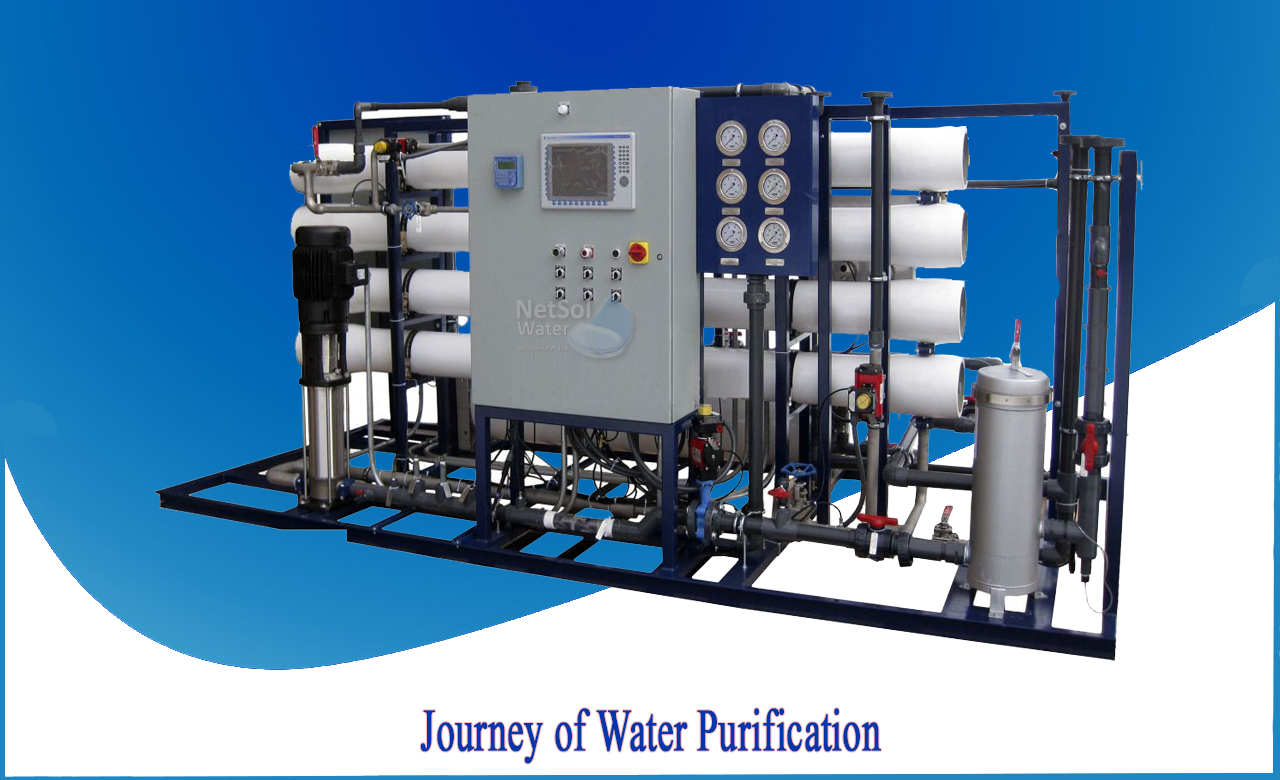PURIFICATION OF WATER IN ANCIENT TIMES
According to the History of Water Purification from the earliest records to the twentieth century, the quest for pure drinking water began in prehistoric times. Nonetheless, the earliest documentation of water treatment was discovered in Sanskrit writings and inscriptions in Egyptian tombs.
Many different water treatment methods are mentioned in the Sanskrit medical writings known as the Sus'rutaSamhita, which dates back to around the 15th century B.C., including the boiling of water over fire, heating of water under the sun, dipping of heated iron into water, filtration through gravel and sand, and the use of the “Strychnos potatorum” seed and a stone known as "Gomedaka."
Other contaminants were captured through filtration using cloth, sand, and charcoal. After that, the purified water is stored in earthen vessels. This improves its bioavailability by enriching it with minerals and increasing its alkalinity.
Water supply systems were built by ancient civilizations using two basic hydraulic principles: 'water flows downhill' and 'water finds its own level.' The extensive hydraulic aqueduct system built by early Roman engineers supplied water.
To overcome gravity and transport water across valleys, they used an inverted syphon, a hydraulic structure that creates a pressurised flow in a pipe. A well-designed delivery system allows a civilization to spend less time and energy transporting water, allowing it to grow and become more complex.
How many Types of Water Filters for Purification System?
There is a vast selection of mineral water plants available to handle any number of water-related concerns, from generating better tasting liquid to making it germ-free.
5 TYPES OF WATER FILTERS FOR PURIFICATION SYSTEM IN INDIA
1-UV FILTERS: For the longest period, people have relied on mechanical filters. Because these filters are stationary, they must be fitted on the spot. As a result, UV filters are the most recommended because of their superior water filters that eliminate waterborne microorganisms.
2-RO FILTERS: RO is the best option for anyone looking for a safe bottled water plant that produces high-quality drinking water. It's a type of water filter that filters all kinds of hazardous compounds and waterborne contaminants using a semi-permeable membrane.
Most bacteria, fluoride, sulphates, industrial chemicals, chlorine, and other contaminants are removed using RO filters. The water is filtered through 4-5 steps in the RO plant. In each stage, it drives the water out of the semi-permeable membrane, leaving the impurities behind. The water is free of all pathogens, including bacteria and heavy metals, after it reaches the last stage.
3-ACTIVATED CARBON WATER FILTER: The carbon filter is one of the most cost-efficient mineral water plant projects and is extremely successful at filtering pollutants in water. Carbon is used as the filtering basic in these filters. Water goes through it and is filtered with the help of carbon. This technique primarily targets larger particles such as sediments and silt, as well as larger bacteria and a variety of other harmful pathogens.
Lead, some parasites, chlorine byproducts, herbicides, and other contaminants are removed using these filters. Depending on the pollutants that need to be removed, one can choose from a variety of carbon block filters. As a result, it's a good idea to taste the water for impurities before deciding which filter is best for them.
4-INFRARED FILTERS: Infrared water filters, like alkaline water filters, are ideal for places with hard water. It softens the water while removing pesticides and other hazardous microorganisms from it. Bacteria and other pollutants in the water are killed by infrared rays. This approach works by generating heat, which kills microorganisms in the water. Water becomes softer as a result of the entire process.
5-ALKALINE AND WATER IONIZER: This water filter is a more advanced sort of water filtration for your home. The alkaline purification technique works by increasing the acidity of the water, making germs hard to thrive. Water is transported over electrically charged plates and divided into two streams using the electrolysis process.
One stream is alkaline, while the other is acidic. Germs are eliminated in this manner. Alkaline ionizer produces soft water while removing hazardous germs, making it ideal for people who live in areas with hard water.
CONCLUSION
NETSOL WATER is the highest rated manufacturing industry for water treatment plants. The main motto is to provide fresh and pure water to the customers by achieving their goals within their pocket needs.
As per our customer needs, NETSOL designs and provides all types of filters for a water purification system in all different ranges.
Netsol Water is Greater Noida-based leading water & wastewater treatment plant manufacturer. We are industry's most demanding company based on client review and work quality. We are known as best commercial RO plant manufacturers, industrial RO plant manufacturer, sewage treatment plant manufacturer, Water Softener Plant Manufacturers and effluent treatment plant manufacturers. Apart from this 24x7 customer support is our USP. Call on +91-9650608473, or write us at enquiry@netsolwater.com for any support, inquiry or product-purchase related query.



